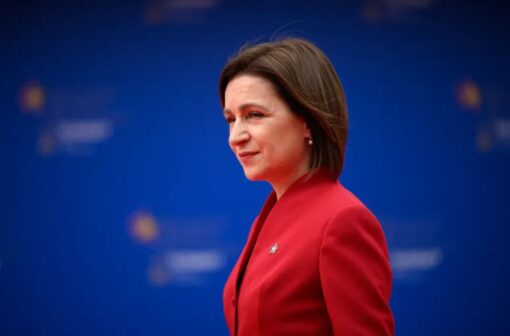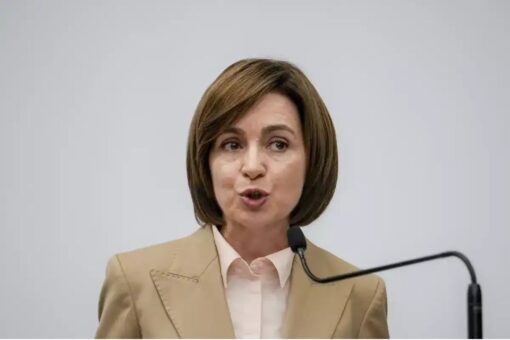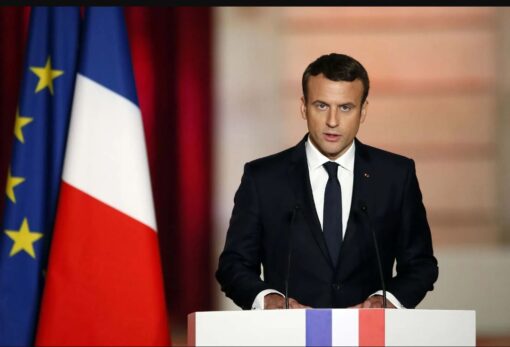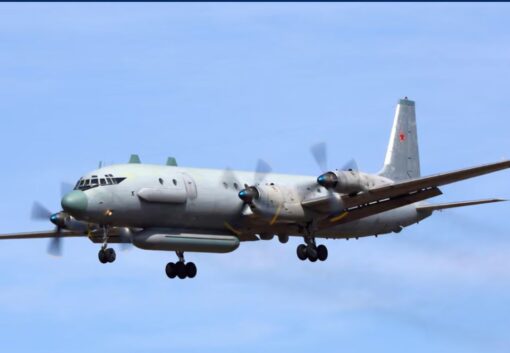Authorities in Moldova have detained seventy-four individuals accused of participating in a Kremlin-backed conspiracy to destabilize the country ahead of crucial national elections.
Officials in Chișinău described the operation as one of the most extensive security crackdowns in recent years, underscoring growing concerns that Russia is seeking to exert influence over Moldova’s fragile democracy.
The coordinated arrests, carried out by the Moldovan Intelligence and Security Service (SIS) with support from police units, were announced late Sunday in a televised address by President Maia Sandu.
Speaking to reporters, Sandu said the European nation had narrowly avoided what she called “a direct assault on Moldova’s sovereignty.” She declared: “These arrests prove that the Kremlin is actively attempting to undermine our democratic institutions and dictate Moldova’s future. We will not allow external actors to steal our elections or destabilize our society.”
According to investigators, the suspects were allegedly part of a network financed and directed by individuals linked to Moscow.

Authorities say the group planned to spread disinformation, stage violent protests, and bribe officials in a bid to sway the parliamentary vote scheduled for October.
“The evidence collected shows clear financial channels from Russian entities to Moldovan intermediaries,” SIS director Alexandru Musteața confirmed. “Their aim was to fracture public trust and provoke chaos in the days leading up to the election.”
Many of those detained were seized in coordinated raids across Chișinău and other major cities. Footage released by police showed masked officers storming apartments, seizing cash, laptops, and encrypted communication devices.
Prosecutor General Veronica Dragalin told local media that the detainees face charges ranging from money laundering and conspiracy to incite unrest, to acting on behalf of a foreign state.
“We are dealing with an organized structure designed to destabilize Moldova from within,” Dragalin emphasized.
This is not the first time Moldova has accused Moscow of interference. Over the past year, several pro-Russian political figures have faced legal challenges, and the Moldovan government has expelled Russian diplomats over allegations of espionage. The latest crackdown, however, marks a significant escalation in the confrontation between Chișinău and the Kremlin.
Russia swiftly denied any involvement. A spokesperson for the Russian foreign ministry accused Moldova of “manufacturing hysteria” and claimed the arrests were part of a wider campaign to discredit opposition forces. “The Moldovan leadership is deliberately framing political dissent as a foreign plot to suppress free expression,” the statement read.
For many Moldovans, the revelation of an alleged Russia-backed plot has stoked anxiety. Natalia Rusu, a university student in Chișinău, described the mood on the streets as tense.
“Everyone is talking about the elections and Russia’s hand in our politics,” she said. “It feels like we are caught between two worlds — one pulling us towards Europe, the other towards Moscow.”
President Sandu has repeatedly championed Moldova’s push toward the European Union, a goal that has provoked the ire of the Kremlin.
Analysts believe Moscow is using hybrid tactics — blending propaganda, cyber operations, and financial leverage — to weaken Moldova’s pro-European course.
Dr. Oleg Serebrian, a political scientist in Chișinău, told The Independent Review: “Russia views Moldova as part of its sphere of influence. With Ukraine resisting militarily, Moldova is the softer target, vulnerable to political subversion rather than direct military aggression.”
The arrests also come amid heightened regional tensions. Since Russia’s invasion of Ukraine in 2022, Moldova has struggled with energy shortages, refugee flows, and pressure from separatist forces in Transnistria, a breakaway region backed by Moscow. Western officials fear that destabilizing Moldova could open another front in Russia’s campaign to reshape Eastern Europe’s security map.
U.S. Secretary of State Antony Blinken expressed support for Moldova, praising the government’s swift action. “The United States stands firmly with Moldova as it confronts malign influence and defends its democracy,” Blinken said in a statement.
The European Union echoed the sentiment, with European Council President Charles Michel noting: “Protecting elections from foreign interference is essential. Moldova’s resilience is Europe’s resilience.”
Those detained reportedly include several known activists tied to pro-Russian political organizations, though authorities have yet to publish full details. Some opposition figures accused the Sandu government of exaggerating the threat to consolidate power before the election.
Igor Dodon, Moldova’s former president who is widely seen as pro-Moscow, dismissed the crackdown as “political theater.” In a televised interview, Dodon argued: “This government is trying to scare voters into believing that anyone who disagrees with Maia Sandu is a Kremlin agent. This is not democracy.”
However, many Moldovans appear to support the government’s actions, citing long-standing suspicions of Russian meddling. Elena Popescu, a shop owner in Bălți, remarked: “We’ve seen Russia interfere in Ukraine, in Georgia, everywhere. Why would Moldova be different? If these people were really plotting, then the arrests are justified.”
Security experts say the scale of the detentions indicates authorities believe they disrupted a serious threat. Colonel Petru Rotaru, a retired intelligence officer, explained: “Seventy-four arrests at once is unprecedented. It tells us that the network was wide, possibly including financiers, organizers, and agitators. The fact that SIS acted before the elections shows they feared an imminent attempt to destabilize the country.”
International watchdogs are urging transparency as the cases move forward. Transparency International Moldova has called for open trials to ensure the legitimacy of the proceedings. “Given the sensitivity of the accusations, the government must avoid secrecy and allow public scrutiny,” the group said in a statement.
The episode underscores the vulnerability of smaller states to geopolitical struggles between East and West. Moldova, with a population of just 2.6 million, finds itself caught in the middle of a battle over influence, values, and security.

Whether the alleged Russia-backed plot was fully neutralized remains unclear, but the arrests highlight the stakes surrounding the upcoming election.
As President Sandu concluded in her speech: “Our democracy is young, but it is resilient. Moldova belongs to its people, not to those who wish to manipulate us from abroad. We will protect our future with courage and unity.”
The Moldova Russia plot, if proven in court, will add to a growing list of cases where Moscow is accused of meddling in foreign elections.
For Moldovans heading to the polls, the question is not just about which party will win, but whether their democracy can withstand the pressure of a larger neighbor intent on shaping their destiny.


